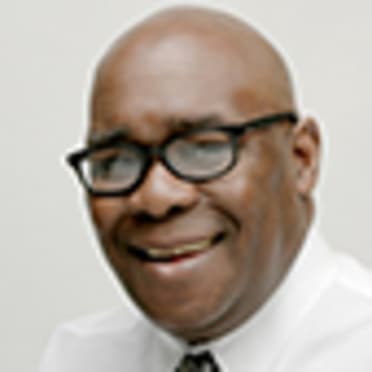Dick Allen, Dave Parker elected to Hall of Fame by Classic Era Committee
Sluggers Dick Allen and Dave Parker earned election to the National Baseball Hall of Fame on Sunday in voting from the Classic Baseball Era Committee. The announcement was made from the Winter Meetings in Dallas.
Needing at least 12 votes of the 16 committee members (75% required), Allen received 13 votes and Parker 14.
The pair were part of an eight-player ballot, which focused on candidates who contributed to the game prior to 1980, including Negro Leagues and pre-Negro Leagues stars. Others on the ballot were Ken Boyer, John Donaldson, Steve Garvey, Vic Harris, Tommy John and Luis Tiant.
Allen and Parker will be a part of the Class of 2025, joining any potential inductees from the Baseball Writers’ Association of America Hall of Fame ballot, which will be announced on Jan. 21, live on MLB Network. The Induction Ceremony will take place on July 27 in Cooperstown, N.Y.
Allen played 15 years (1963-77) in Major League Baseball, mostly with the Phillies and White Sox, made seven All-Star appearances and won the American League Most Valuable Player Award in '72. Allen's FanGraphs OPS+ (156) is the highest in Phillies history, ahead of Hall of Famer Mike Schmidt, matching Willie Mays and Frank Thomas and tied for 14th among players with at least 7,000 plate appearances.
“I’ve been holding this speech in for 15 years,” Parker told MLB Network.
From 1964-74, Allen was first in MLB in offensive WAR (68.3), according to MLB Network, ahead of Hank Aaron, Frank Robinson, Carl Yastrzemski and Joe Morgan. Allen ranks 208th in career Bwar (58.7), ahead of Hall of Famers Enos Slaughter, Willie Stargell and Tony Perez.
While Statcast wasn’t around when Allen played, he was known to use a 42-ounce bat and hit monster home runs. Some of those homers were legendary. According to Baseball Almanac, Allen hit 18 home runs that cleared Connie Mack Stadium's 65-foot-high left-field grandstand. Also according to the website, Allen twice cleared the park's 65-foot-high right-center-field scoreboard.
Allen passed away in 2020.
Allen’s son, Richard Allen Jr., was at the Hilton Anatole hotel in Dallas when he received word that his father would be enshrined in Cooperstown.
“My son was like, ‘I have a feeling.’ But for me, I just kind of like, well, let's see, let's see,” Allen Jr. said. “It's like waiting on that third out. Just wait, just waiting. It's a load off my mind and off my back. [My father] … never talked about it. He always felt other people were more deserving. … I was like, ‘No, your numbers are just [as] good. You should be there. You should be there. He’d say, ‘I'm all right, I'm all right.’ I don't know how it happened, so that's good. I told him that he’d deserve it.”
If Allen Sr. was alive, how would he react to big news of being inducted into the Hall of Fame?
“He would probably be telling one of his old stories. Horse stories and deflecting the honor, but appreciative of it at the same time,” Allen Jr. said. “I was just telling someone the other day in an interview, they actually had to mail him the MVP trophy [in ‘72] because he didn’t take it. That’s his humbleness. So for this, I think he's happier that I would be doing this and not him.”
Allen will share the Hall of Fame honor with the man known as "The Cobra." Parker was an intimidating force when he wielded a 37-ounce bat during the 1970s and '80s for six Major League teams, including the Pirates, Reds and Athletics. Besides winning two batting titles, an NL MVP Award, three NL Gold Glove Awards and three NL Silver Slugger Awards, Parker played 19 years in the big leagues, hitting .290 with 339 home runs and 1,493 RBIs. He was the Designated Hitter of the Year in 1989 and '90.
Parker had a cannon for an arm -- the same arm that threw out Jim Rice and Brian Downing in the 1979 All-Star Game, earning Most Valuable Player honors. It proved to be the difference as the NL edged the AL, 7-6.
However, Parker said his best moment was winning the 1979 World Series with the Pirates, who beat the Orioles in seven games.
“I’m proud of a group thing,” Parker said. “The fact that I played in that era because the '70s was tough. You had to be a heck of a player to play in the '70s and I enjoyed them. I liked the competition, used to love those battles with [the Phillies] and [Mets]. I just enjoyed playing.”
Parker grew up in Cincinnati and was influenced to play the game of baseball by watching Frank Robinson play for the hometown Reds. As a kid, Parker knew Frank Robinson, who would often give him bats and balls to play with.
“It did me some good because I was in the neighborhood,” Parker remembered. “Frank took care of me. He was a major influence in my life. I did the same thing for the youth of my neighborhood.”
Parker also took care of the young players in the Major Leagues. Take the time he was a member of the Reds -- he took a 21-year-old-player named Eric Davis under his wing starting in 1985.
“It was intimidating because of the man, the player and the status that he had when he came from Pittsburgh in 1984 and me being 21 years old. He made that transition easy for me,” Davis said. “That’s why … I became his son. He was my father away from home.”

